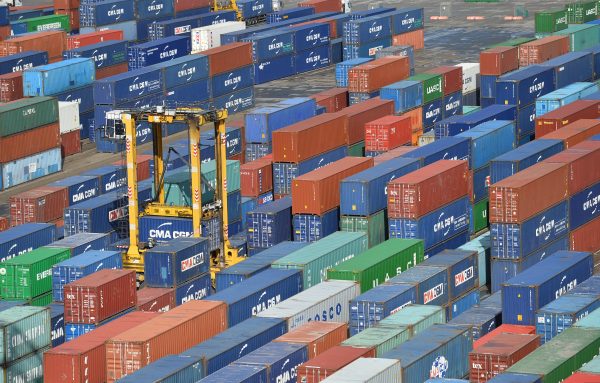At the domestic level, the pandemic will likely result in legislation from the most important trading nations that attempts to domesticate production. Sometimes the language used is more obscure — such as the US emphasis on ‘supply chain resilience’ — but the practical effect is the same.
The pandemic provides a convenient excuse for those looking to diversify supply chains away from China. There have been efforts to label some goods as having critical ‘national security’ importance or being ‘essential interests’. This began when the demand for medical personal protective equipment (PPE) and ventilators suddenly spiked in early 2020. Pandemic-related supply chain disruption is still leading to periodic shortages of critical components and inputs for industrial manufacturing.
The market rapidly adjusted to the increased demand for PPE and hygiene items such as hand sanitizer, with shortages quickly turning into gluts. With increased supply, price spikes and gouging soon became discount sales. Yet governments still seek to fracture global supply chains by encouraging domestic production, especially for medical products and pharmaceuticals. The forced localisation of production facilities is a particularly reckless initiative.
Most worrying is that governments are targeting a problem that does not exist. Despite issues of equitable distribution, the existing market structure for producing vaccines has worked. Before COVID-19, the world produced approximately 2 billion doses a year and it was estimated that an additional 11 billion would be needed in 2021.
Within the space of a year, multiple vaccines have been developed and over 6 billion doses have been produced. The target of 11 billion will be met. This target may prove incorrect, with children in some countries now receiving vaccines and booster shots potentially being necessary — but the market is responding.
The pandemic could make governments less likely to engage in international lawmaking as uncertainty leads to stronger notions of sovereignty and an accompanying hesitance by governments to further liberalise trade. Trade can be a force for good during pandemics and such hesitation threatens economic recovery and growth.
Before COVID-19, there was already a trend towards increased protectionism and managed trade, with prominent examples being the failure of the WTO’s Doha Round of trade negotiations and US President Donald Trump’s approach to counter China’s rise.
The uncertainty brought about by COVID-19 has led to even less trust in the global system and calls for increased ‘homegrown’ reliance. It has not helped that several countries have initiated a host of trade-restrictive measures, including actual or de facto export bans on PPE and vaccines. While the crisis should lead to increased liberalisation to avoid supply issues, there is no indication this will be the case.
Liberalisation in e-health services, including investment and mutual recognition of qualifications, could help in the fight against the next virus, yet no efforts have been made as countries retreat into a protectionist stance.
A potential caveat is the WTO negotiations on fisheries subsidies. If members can agree to a deal within the next few months, there might be hope for lawmaking at the WTO. If members cannot even pick the low-hanging fruit, the WTO’s future looks grim.
COVID-19 has exacerbated a trend of countries eschewing large multilateral agreements in favour of negotiating niche bilateral and regional ones that offer less growth potential. While there are exceptions, we have entered a phase of consolidation rather than expansion of trade agreements. This period will remain at least until the United States elects to re-engage and show leadership for the WTO and broader trade initiatives.
Niche agreements are less than ideal, as they often contain substantial policy space and carve-outs that detract from ambition and open the potential for abuse. A prominent example is digital trade, which has become a separate chapter in many free trade agreements and even the subject of a stand-alone agreement between New Zealand, Singapore and Chile.
It is not a coincidence that in a time of crisis and growing protectionist tendencies, it is smaller nations trying to develop forward-looking models of quality trade agreements — their survival very much depends on maintaining access to trade.
While some of these agreements purport to guarantee and protect the free flow of data across borders, expansive exceptions for ‘public policy’ purposes might gut the core commitments and allow any and all behaviour to be added or maintained.
Lawmaking during and post-pandemic will be scattered, unpredictable and lead to uncertainty for traders and friction for governments.
Bryan Mercurio is the Simon F S Li Professor of Law at the Chinese University of Hong Kong.
The author gratefully acknowledges the funding support by the Hong Kong Humanities and Social Sciences Prestigious Fellowship Scheme (Project no. 34000220), for a project entitled Reshaping Global Trade: The Impact and Effects of the US-China Trade War.

